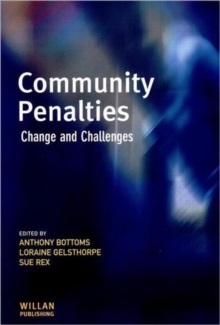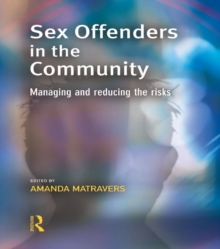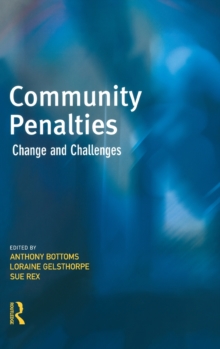
Young Adult Offenders : Lost in Transition? PDF
Edited by Friedrich Losel, Anthony Bottoms, David P. (University of Cambridge, UK) Farrington
Part of the Cambridge Criminal Justice Series series
Description
This latest volume in the Cambridge Criminal Justice Series focuses upon young adults and their treatment in the criminal justice system.
The subject is very topical because there is increasing evidence that a rigid distinction between ‘youth’ and ‘adulthood’ is not appropriate in modern societies.
For example, important developmental tasks such as finishing one’s education, finding regular work and the foundation of one’s own family are now completed later than in former times; neuropsychological brain functions are still developing beyond age 18; and desistance from criminal offending occurs most rapidly in early adulthood.
Despite such evidence, the United Kingdom and other countries have largely neglected policies for young adult offenders in comparison with young people under 18.
Although there seems to be no general transnational solution for this problem, there is a clear need for differentiation.
This book brings together leading authorities in the field to analyse theoretical, empirical and policy issues relating to this neglected group of people, exploring different approaches to both crime prevention and offender treatment.
It will be of interest to researchers, practitioners and policy makers in the fields of criminology, criminal justice, prisons, probation, forensic psychology and psychiatry, sociology, education and social work.
Information
-
Download - Immediately Available
- Format:PDF
- Pages:192 pages, 11 Tables, black and white; 18 Line drawings, black and white; 18 Illustrations, black an
- Publisher:Taylor & Francis Ltd
- Publication Date:26/07/2012
- Category:
- ISBN:9781136469589
Information
-
Download - Immediately Available
- Format:PDF
- Pages:192 pages, 11 Tables, black and white; 18 Line drawings, black and white; 18 Illustrations, black an
- Publisher:Taylor & Francis Ltd
- Publication Date:26/07/2012
- Category:
- ISBN:9781136469589










